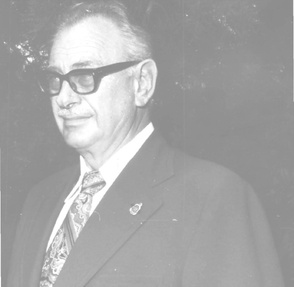|
J. William T. "Bill" Youngs, The Fair and the Falls: Spokane’s Expo ’74: Transforming an American Environment, Chapter Nine
|
"Spokane Downtown" courtesy of the Washington State Archives
|
Chapter Nine: Visualizing a World's Fair
|
SummaryOne of King Cole's first steps in Spokane was to galvanize community support for renewal. Associations for a Better Community (ABC) was formed in 1964 and set about sponsoring local renewal projects in tandem with Spokane Unlimited. Their efforts ranged from downtown cleanup to the creation of a Japanese tea garden; but the centerpiece of their efforts was their plan to revitalize the riverfront. Realizing the need to expand the scope of their renewal activities, King Cole suggested involving the federal government in their plans. The largest obstacle to riverfront development plans were the railroads, who owned the majority of the property. Searching for a mechanism to foster renewal, Spokane Unlimited decided to promote a world's fair.
|
Author reads from the Text
"Town hall meetings"
"According to two of its supporters, Ed and Jean Keil, who wrote an account of the organization, 'ABC has no dues, no membership fees, no initiation ceremony and no axes to grind....ABC is unique in attempting to create an atmosphere in which everyone feels wanted and needed.' They called ABC 'a refined version of the old New England town hall meetings...based on the premise that in our form of government no citizen should utter the phrase, 'Why don't they do something about that?' We are all a part of that 'they.'"
"Dirty money"
"Spokane was at first ambivalent about seeking federal renewal funds. Bill Fearn recalled that many citizens felt, 'Well, we aren't sure whether we want any of that dirty money in Spokane.' They feared that if they accepted such grants, they would be forced to accept federal control. Jim Sloane, later city attorney of Spokane, recalled that 'urban renewal was sort of a political tar baby at that time.' The attraction of federal and state dollars grew, however, with the defeat of bond measures during the early 1960s."
"A small-town hick outfit"
"Neal Fosseen remarked, 'as long as you have a railroad running right through the middle of downtown, stopping traffic, you are pretty much a small-town, hick outfit.' King Cole added that 'trains and automobiles were all mixed up. Those trains would be moving freight, and you would get your car down on Howard Street at one of those train crossings. And you'd see the end of the train coming, coming, coming, coming, and just as you're ready to cross -- load her up and get goingÑthe whole thing stops and goes backward again. This is how it was. It was silly that this was happening in this day and age, but it was happening every day all the time.'"
"The looming extinction of whole species"
On September 16, 1970, Economics Research Associates -- a firm hired by Spokane Unlimited to assess the practicality of a Spokane world's fair -- issued a report. The preamble was a forthright, somewhat preachy statement on the importance of environmental awareness:
"Since the beginning of time the human species, uniquely among living creatures, has been engaged in the conquest of its environment. As in all forms of conquest, heed had seldom been given to the consequences. Man has tended to be as artless about ends as he is artful about means. This paradox has resulted in gradual but cumulative damage to the environment. Today the havoc is as visible as urban smog, as manifest as the looming extinction of whole species, and as menacing as poisoned water and shrinking supplies of oxygen."
"Since the beginning of time the human species, uniquely among living creatures, has been engaged in the conquest of its environment. As in all forms of conquest, heed had seldom been given to the consequences. Man has tended to be as artless about ends as he is artful about means. This paradox has resulted in gradual but cumulative damage to the environment. Today the havoc is as visible as urban smog, as manifest as the looming extinction of whole species, and as menacing as poisoned water and shrinking supplies of oxygen."

